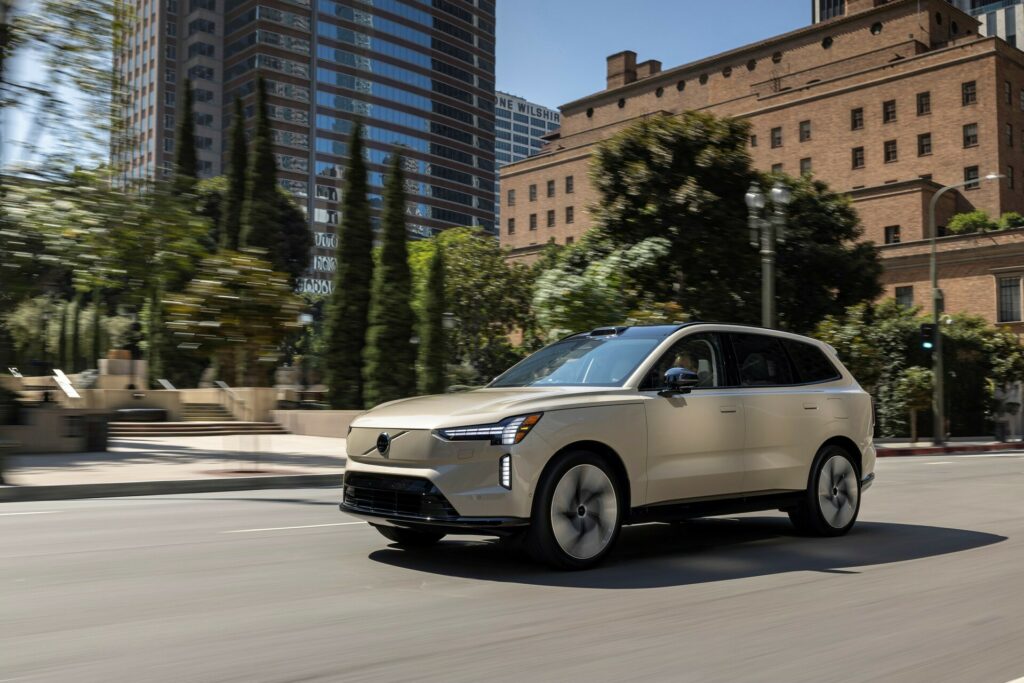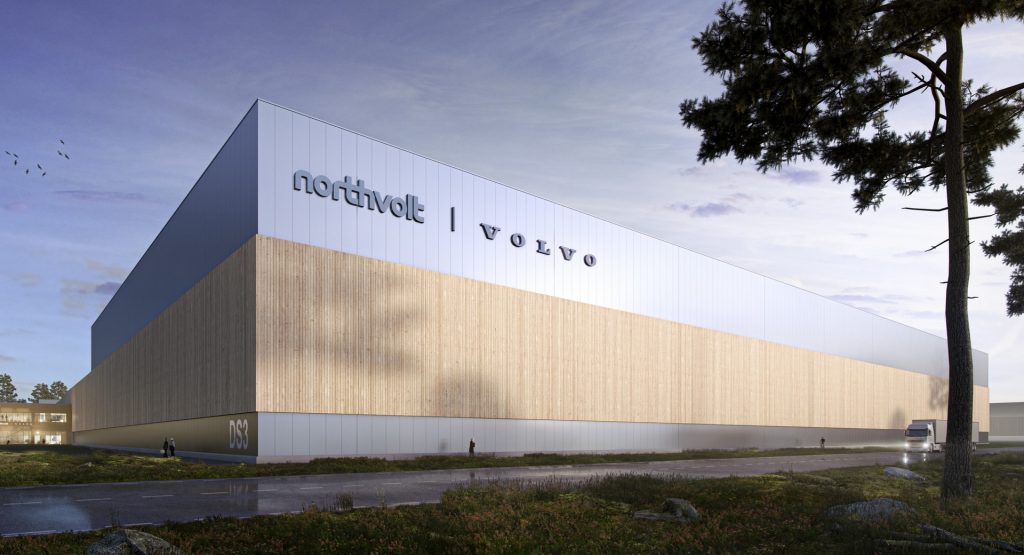- The Swedish carmaker has a battery plant scheduled to open in 2025 in Gothenburg.
- In addition to asking for $1.2 billion worth of taxpayer dollars, Volvo has applied for state loan guarantees.
- Volvo recently backed away from a plan to sell nothing but EVs by 2030.
Volvo is seeking the equivalent of $1.2 billion from the Swedish government to help fund the electric vehicle battery plant it’s constructing alongside Northvolt, through a joint venture known as Novo Energy.
The plant, located in Gothenburg, has been years in the making and is scheduled to open in 2025. It will have a potential annual cell production capacity of up to 50 GWh, enough to supply the needs of around 500,000 vehicles per year, including Volvo and Polestar models.
Read: Volvo’s New Gothenburg Battery Plant Is Powered By Renewable Energy
Dagens Nyheter has revealed the joint venture is asking for the largest direct grant that’s been sought from the Swedish Energy Agency – totaling 13 billion Swedish kronor (~$1.2 billion) – to complete the plant. According to Novo Energy communications director Christian Jebsen, “Starting industries like this is very expensive, and financial support is crucial at this stage.”
In addition to asking for a substantial grant of taxpayer money, Volvo and Northvolt have applied for state loan guarantees through the local Debt Office. It’s not just the financing of the plant that’s proving difficult to secure. According to Dagens Nyheter, the factory lacks 70% of the electricity it needs to operate.

Volvo had announced that it would sell nothing but EVs by 2030 when it committed to the plant. It recently walked back that promise, announcing it aims for electrified vehicles to account for 90-100% of its sales by 2030, with many of these to be plug-in hybrids and mild-hybrids. The Swedish brand has blamed the change on the slower-than-expected rollout of charging infrastructure, a lack of government incentives, and recent uncertainties created by new EV tariffs.
In a statement discussing the matter, Volvo chief executive Jim Rowan said the carmaker is “resolute in our belief that our future is electric,” noting it “provides a superior driving experience and increases possibilities for using advanced technologies that improve the overall customer experience.” He added the “transition to electrification will not be linear, and customers and markets are moving at different speeds of adoption.”




